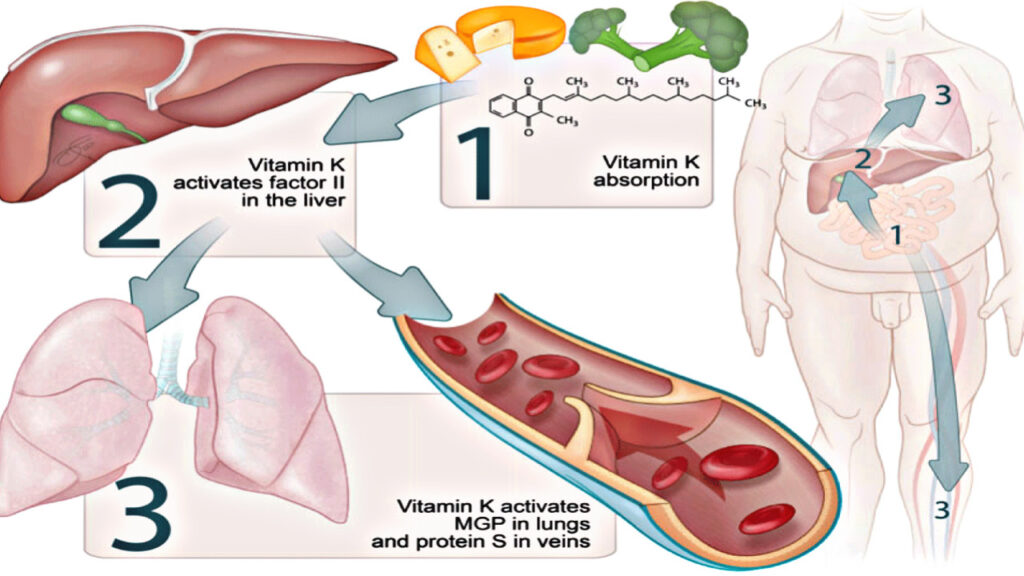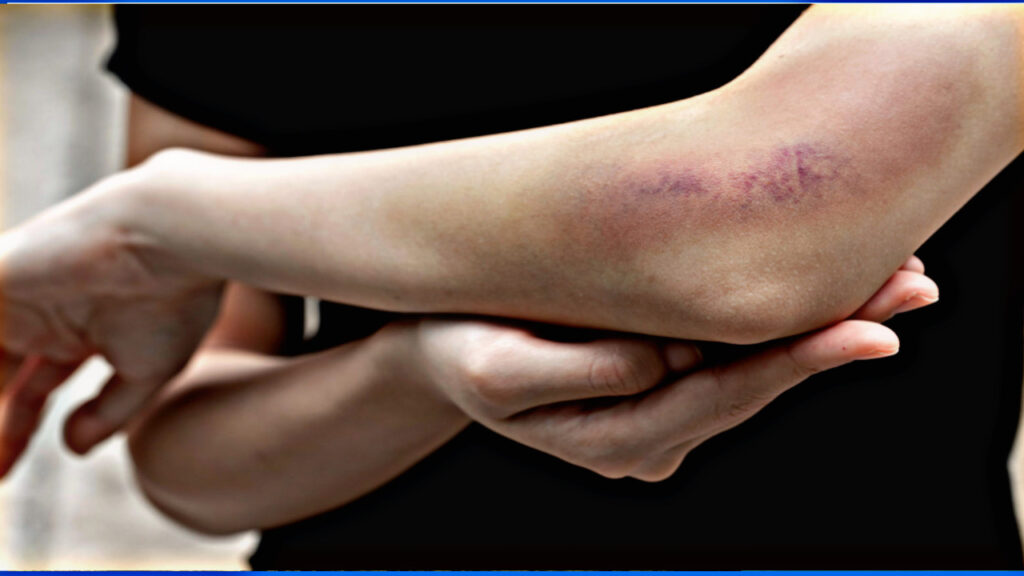Vitamin K
When we experience leg pain or feel fatigued, we often attribute it to overexertion, long hours of standing, or simply the stresses of daily life. However, there’s an often overlooked culprit that might be contributing to these symptoms: a deficiency in Vitamin K. While this essential vitamin is most commonly associated with bone health and blood clotting, its absence can have a more extensive impact on our body, particularly on our legs.

The Role of Vitamin K in the Body
Vitamin K is a fat-soluble vitamin that plays a crucial role in various bodily functions, the most prominent being the regulation of calcium in the bones and blood. It ensures proper blood clotting, which is essential for preventing excessive bleeding in case of injuries. Furthermore, Vitamin K contributes to bone health by activating proteins that help the body maintain bone density and prevent osteoporosis.
However, the deficiency of Vitamin K often goes unnoticed, primarily because its early signs can be quite subtle. The most common symptoms are associated with leg pain, fatigue, and swelling, which may seem like ordinary ailments but can actually be indicative of a more serious underlying issue.
How Vitamin K Deficiency Leads to Leg Pain
- Weakening of Bones and Joints:
A lack of Vitamin K can lead to weak bones and impaired joint health. Over time, this can cause discomfort and pain, particularly in the legs. This is because Vitamin K helps in the regulation of calcium, and without it, calcium may accumulate in soft tissues instead of being deposited in bones, resulting in pain and stiffness, especially in the lower extremities. - Poor Blood Circulation:
Since Vitamin K is responsible for blood clotting, a deficiency can affect circulation. Inadequate blood flow to the legs can lead to pain, numbness, and a feeling of heaviness. When the blood doesn’t circulate effectively, it may cause fluid retention, swelling, and discomfort, making it difficult to move freely. - Muscle Cramps and Spasms:
Another symptom of Vitamin K deficiency is muscle cramps. This often occurs due to the body’s inability to regulate calcium properly, which is essential for muscle function. Without sufficient Vitamin K, muscles may contract erratically, causing painful spasms and cramps, particularly in the legs.
Recognizing the Symptoms of Vitamin K Deficiency

If you experience persistent leg pain or fatigue, it could be a sign that you’re not getting enough Vitamin K in your diet. Below are some common symptoms to look out for:
- Constant Leg Pain or Discomfort: Ongoing pain in the legs that doesn’t improve with rest or basic stretching could indicate a deficiency.
- Swelling or Heaviness: Feeling of swelling, heaviness, or tightness in the legs, especially after prolonged standing or sitting.
- Fatigue and Weakness: A general feeling of tiredness and lack of energy, which might not be linked to physical exertion, could also be a sign.
- Frequent Muscle Cramps: Experiencing cramps, particularly in the calves, could signal an imbalance in calcium levels due to lack of Vitamin K.
- Bruising or Bleeding: Since Vitamin K is vital for blood clotting, unexplained bruising or excessive bleeding (even from small cuts) can also be an indication of a deficiency.
How to Prevent Vitamin K Deficiency

To prevent Vitamin K deficiency and associated symptoms like leg pain, you should aim to incorporate more Vitamin K-rich foods into your diet. These include:
- Leafy Green Vegetables: Spinach, kale, collard greens, and broccoli are excellent sources of Vitamin K.
- Fish and Meat: Fish like salmon and mackerel, as well as meats like liver, are rich in this essential vitamin.
- Fermented Foods: Natto (fermented soybeans) and certain types of cheese are also good sources.
- Supplements: In cases of severe deficiency, doctors may recommend Vitamin K supplements.
In conclusion, leg pain and fatigue are common complaints that can be linked to a variety of health conditions. If these symptoms persist, it is worth considering the possibility of Vitamin K deficiency. By recognizing the signs and making dietary adjustments, you can manage the deficiency and improve your overall health, especially in your legs.





